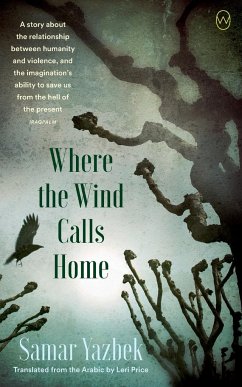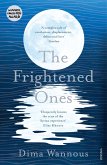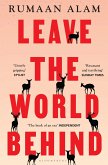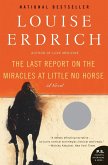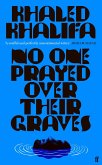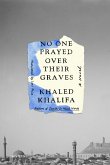LONGLISTED for the 2024 NATIONAL BOOK AWARD for TRANSLATED LITERATURE
"The potent latest from Yazbek (Planet of Clay) weighs the consequences of the Syrian civil war after a 19-year-old soldier, Ali, survives his patrol station's 2013 bombing in the Lattakia mountains. This slim novel packs a punch."-Publishers Weekly
Ali, a nineteen-year-old soldier in the Syrian army, lies on the ground beneath a tree. He sees a body being lowered into a hole-is this his funeral? There was that sudden explosion, wasn't there ... While trying to understand the extend of the damage, Ali works his way closer to the tree. His ultimate desire is to fly up to one of its branches, to safety. Through rich vignettes of Ali's memories, we uncover the hardships of his traditional Syrian Alawite village, but also the richness and beauty of its cultural and religious heritage. Yazbek here explores the secrets of the Alawite faith and its relationship to nature and the elements in a tight poetic novel dense with life and hope and love.
"The potent latest from Yazbek (Planet of Clay) weighs the consequences of the Syrian civil war after a 19-year-old soldier, Ali, survives his patrol station's 2013 bombing in the Lattakia mountains. This slim novel packs a punch."-Publishers Weekly
Ali, a nineteen-year-old soldier in the Syrian army, lies on the ground beneath a tree. He sees a body being lowered into a hole-is this his funeral? There was that sudden explosion, wasn't there ... While trying to understand the extend of the damage, Ali works his way closer to the tree. His ultimate desire is to fly up to one of its branches, to safety. Through rich vignettes of Ali's memories, we uncover the hardships of his traditional Syrian Alawite village, but also the richness and beauty of its cultural and religious heritage. Yazbek here explores the secrets of the Alawite faith and its relationship to nature and the elements in a tight poetic novel dense with life and hope and love.
Praise for Samar Yazbek
"One of Syria's most gifted novelists." -CNN
"Yazbek's is the urgent task of showing the world what is happening. Thanks to her, we can read about the appalling things that go on in secret, underground places." -The Guardian
Praise for Where the Wind Calls Home
"The potent latestfrom Yazbek (Planet of Clay) weighs the consequences of the Syrian civilwar after a 19-year-old soldier, Ali, survives his patrol station's 2013bombing in the Lattakia mountains.This slim novel packs a punch." -Publishers Weekly
"Where the Wind Calls Home, Syrian author Samar Yazbek's latest novel to be translated into English, is a stunning offering of spirituality, memory, and all those implacable, liminal spaces wherein only the mind may venture." -Asymptote Journal
"In this compact, stream-of-consciousness narrative, 19-year-old Ali, a conscript in the Syrian Army fighting in the civil war that's ravaged the country for more than a decade, lingers between life and death after a bomb accidentally falls on the position he shares with four comrades. Yazbek, a Syrian journalist and screenwriter who's written previously about the war in both fiction and nonfiction, returns repeatedly to vivid imagery of trees, rivers, sky, and other aspects of the natural world that are central elements in defining Ali's character and experience. His broken body lies beneath a large tree that evokes memories of a more than 500-year-old oak tree that stood next to the prayer space in his village, and in which he once constructed a kind of dwelling with the assistance of his mother, Nahla. Yazbek efficiently paints a portrait of her sympathetic protagonist, a young man possessed of both strong religious impulses and a rebellious streak that exposes him to beatings both at school and at home." -Kirkus Reviews
"An evocative, if slow-paced, meditation about people caught in the turning wheel of Syria's violent present." -Kirkus Reviews
""Where the Wind Calls Home introduces us to Ali, a 19-year-old Syrian soldier on the brink of life and death, vividly portrayed by the talented novelist and journalist Samar Yazbek. Ali, lying beneath a timeless tree, grapples with memories oscillating between joy and pain. He's unsure if the body being laid to rest is his or another's, consumed by haunting uncertainty. Award-winning translator Leri Price renders Yazbek's exploration of war's devastation, the allure of Ali's traditional Alawite village, and the profound connection between Ali and his surroundings in English." -About Her
"Yazbek's well-paced and intimate novel reveals the traumas of war and being a soldier." -Arab News
"An authentic funeral dirge, ode to a world condemned to disappearance under the combined effects of the tyranny of the regime and the civil war, perhaps the most beautiful novel that we can read by Samar Yazbek to date." -Le Monde
"From the simple story of a soldier who is subjected to friendly fire and relives moments from the span of his life as he hovers between life and death, Yazbek conveys her reader to the true story that constitutes the novel within her novel: the story of nature merging with a person more like a son to her, at the fateful moment when his feelings open up to their full truth. This story is represented in a unique manner through the condensing and stretching of time; releasing language filled with eloquent poetry and vernacular vitality that moves with the pulse of the people; varying the narrative time between past, present and future; creating a structure that accommodates the two overlapping narratives; and choosing unique, captivating characters through which events and history are set in motion, references and traits are created, and selves are made both simpler and more complex." -Al-Quds Al-Arabi
"A story about the relationship between humanity and violence, and the imagination's ability to save us from the hell of the present." -Iraqpalm
"Yazbek's language is distinguished by the power of her phrasing, the eloquence of her vocabulary, leaning on an abundant linguistic store, encyclopedic knowledge and culture, and the accumulation of personal experience." -EREM News
"Samar Yazbek has written a powerful, symphonic novel, in language that is flowing, sharp, and precise. It has a leisurely rhythm and a transparent beauty. A novel that, one wishes, one was not reading through the lens of scrutiny, but with the anesthetic of hope and the purity of wishful thinking." -Independent Arabia
Praise for Planet of Clay
National Book Award 2021 Finalist
"The young, mute narrator of this compassionate novel becomes a poignant emblem of the Syrian women confined by war... A bold portrayal of besieged people." -The Observer
"Planet of Clay is a devastating novel about human resilience and fragility in a time of war."Foreword Reviews, starred review"Rima is a fantastic character." -Kirkus Reviews
"Planet of Clay gives a haunting and unflinching look at the horrors of war-the bombing, the starvation, the fear-all seen through the eyes of Rima, a young girl with a vibrant imagination." -NPR
"Wrenching ... offers a remarkable account of wartime despair." -Publishers Weekly
"Samar Yazbek has written a novel that, while sometimes frustrating or overwrought, nonetheless manages to speak to the urgency of telling and listening to the most vulnerable of stories-stories by people who in other circumstances might have had more than one story to tell." -Words Without Borders
"One of Syria's most gifted novelists." -CNN
"Yazbek's is the urgent task of showing the world what is happening. Thanks to her, we can read about the appalling things that go on in secret, underground places." -The Guardian
Praise for Where the Wind Calls Home
"The potent latestfrom Yazbek (Planet of Clay) weighs the consequences of the Syrian civilwar after a 19-year-old soldier, Ali, survives his patrol station's 2013bombing in the Lattakia mountains.This slim novel packs a punch." -Publishers Weekly
"Where the Wind Calls Home, Syrian author Samar Yazbek's latest novel to be translated into English, is a stunning offering of spirituality, memory, and all those implacable, liminal spaces wherein only the mind may venture." -Asymptote Journal
"In this compact, stream-of-consciousness narrative, 19-year-old Ali, a conscript in the Syrian Army fighting in the civil war that's ravaged the country for more than a decade, lingers between life and death after a bomb accidentally falls on the position he shares with four comrades. Yazbek, a Syrian journalist and screenwriter who's written previously about the war in both fiction and nonfiction, returns repeatedly to vivid imagery of trees, rivers, sky, and other aspects of the natural world that are central elements in defining Ali's character and experience. His broken body lies beneath a large tree that evokes memories of a more than 500-year-old oak tree that stood next to the prayer space in his village, and in which he once constructed a kind of dwelling with the assistance of his mother, Nahla. Yazbek efficiently paints a portrait of her sympathetic protagonist, a young man possessed of both strong religious impulses and a rebellious streak that exposes him to beatings both at school and at home." -Kirkus Reviews
"An evocative, if slow-paced, meditation about people caught in the turning wheel of Syria's violent present." -Kirkus Reviews
""Where the Wind Calls Home introduces us to Ali, a 19-year-old Syrian soldier on the brink of life and death, vividly portrayed by the talented novelist and journalist Samar Yazbek. Ali, lying beneath a timeless tree, grapples with memories oscillating between joy and pain. He's unsure if the body being laid to rest is his or another's, consumed by haunting uncertainty. Award-winning translator Leri Price renders Yazbek's exploration of war's devastation, the allure of Ali's traditional Alawite village, and the profound connection between Ali and his surroundings in English." -About Her
"Yazbek's well-paced and intimate novel reveals the traumas of war and being a soldier." -Arab News
"An authentic funeral dirge, ode to a world condemned to disappearance under the combined effects of the tyranny of the regime and the civil war, perhaps the most beautiful novel that we can read by Samar Yazbek to date." -Le Monde
"From the simple story of a soldier who is subjected to friendly fire and relives moments from the span of his life as he hovers between life and death, Yazbek conveys her reader to the true story that constitutes the novel within her novel: the story of nature merging with a person more like a son to her, at the fateful moment when his feelings open up to their full truth. This story is represented in a unique manner through the condensing and stretching of time; releasing language filled with eloquent poetry and vernacular vitality that moves with the pulse of the people; varying the narrative time between past, present and future; creating a structure that accommodates the two overlapping narratives; and choosing unique, captivating characters through which events and history are set in motion, references and traits are created, and selves are made both simpler and more complex." -Al-Quds Al-Arabi
"A story about the relationship between humanity and violence, and the imagination's ability to save us from the hell of the present." -Iraqpalm
"Yazbek's language is distinguished by the power of her phrasing, the eloquence of her vocabulary, leaning on an abundant linguistic store, encyclopedic knowledge and culture, and the accumulation of personal experience." -EREM News
"Samar Yazbek has written a powerful, symphonic novel, in language that is flowing, sharp, and precise. It has a leisurely rhythm and a transparent beauty. A novel that, one wishes, one was not reading through the lens of scrutiny, but with the anesthetic of hope and the purity of wishful thinking." -Independent Arabia
Praise for Planet of Clay
National Book Award 2021 Finalist
"The young, mute narrator of this compassionate novel becomes a poignant emblem of the Syrian women confined by war... A bold portrayal of besieged people." -The Observer
"Planet of Clay is a devastating novel about human resilience and fragility in a time of war."Foreword Reviews, starred review"Rima is a fantastic character." -Kirkus Reviews
"Planet of Clay gives a haunting and unflinching look at the horrors of war-the bombing, the starvation, the fear-all seen through the eyes of Rima, a young girl with a vibrant imagination." -NPR
"Wrenching ... offers a remarkable account of wartime despair." -Publishers Weekly
"Samar Yazbek has written a novel that, while sometimes frustrating or overwrought, nonetheless manages to speak to the urgency of telling and listening to the most vulnerable of stories-stories by people who in other circumstances might have had more than one story to tell." -Words Without Borders

